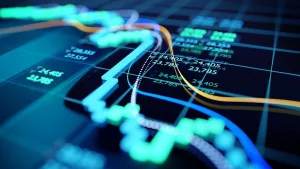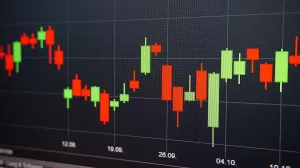How does the LME handle force majeure events?
3 min read
How does the LME handle force majeure events?
Force majeure events, unforeseen circumstances beyond the control of market participants, can disrupt the smooth functioning of financial markets, including the London Metal Exchange (LME). From natural disasters to geopolitical crises, force majeure events have the potential to impact metal production, transportation, and trading activities, posing challenges for traders, investors, and industry stakeholders. But how does the LME handle force majeure events, and what measures are in place to mitigate their impact on market operations? In this comprehensive guide, we explore the LME’s approach to handling force majeure events, providing insights into its policies, procedures, and implications for market participants.
1. Definition and Scope
Force majeure events are defined as unforeseeable circumstances or events beyond the control of parties to a contract that prevent or delay the fulfillment of contractual obligations. These events can encompass a wide range of occurrences, including natural disasters (e.g., earthquakes, hurricanes), geopolitical conflicts, regulatory changes, industrial accidents, and acts of terrorism, among others. The LME acknowledges the potential impact of force majeure events on market operations and has established policies and procedures to address such situations in a fair, transparent, and orderly manner.
2. Notification and Communication
When a force majeure event occurs, market participants are required to promptly notify the LME of the event and its potential impact on their ability to fulfill contractual obligations. The exchange maintains open lines of communication with affected parties, providing guidance and assistance as needed to navigate the challenges posed by the event. Timely and transparent communication is essential to ensure that all stakeholders are informed of developments and can take appropriate actions to manage their exposure to risks arising from the force majeure event.
3. Evaluation and Assessment
Upon receiving notification of a force majeure event, the LME conducts a thorough evaluation and assessment of the situation to determine its implications for market operations and the integrity of the exchange. This may involve gathering information from affected parties, assessing the extent of disruptions to metal production, transportation, and trading activities, and evaluating the potential impact on market participants’ ability to fulfill contractual obligations. The exchange collaborates with relevant authorities, industry experts, and stakeholders to gather insights and make informed decisions about the appropriate course of action.
4. Contingency Planning and Risk Management
In response to force majeure events, the LME implements contingency plans and risk management measures to safeguard market integrity and mitigate the impact on market participants. This may include implementing temporary trading suspensions or restrictions, adjusting trading hours, extending contract deadlines, or facilitating alternative arrangements for metal delivery and settlement. The exchange works closely with affected parties to explore solutions and minimize disruptions to market operations while maintaining the integrity and efficiency of the market.
Conclusion: Ensuring Resilience in Uncertain Times
In conclusion, force majeure events pose significant challenges for the London Metal Exchange (LME) and its stakeholders, requiring swift and coordinated responses to safeguard market integrity and mitigate risks. By maintaining clear policies, effective communication channels, and robust contingency plans, the LME strives to navigate uncertainty and ensure resilience in the face of unforeseen circumstances. Market participants can take confidence in the exchange’s proactive approach to handling force majeure events, knowing that measures are in place to address disruptions and maintain the orderly functioning of the market.
Market participants can take confidence in the exchange’s proactive approach to handling force majeure events, knowing that measures are in place to address disruptions and maintain the orderly functioning of the market. Whether it’s natural disasters, geopolitical tensions, or other unforeseen challenges, the LME remains committed to upholding market integrity, fostering transparency, and supporting the needs of traders, investors, and industry stakeholders in navigating uncertainty and building resilience in the global metals market.






